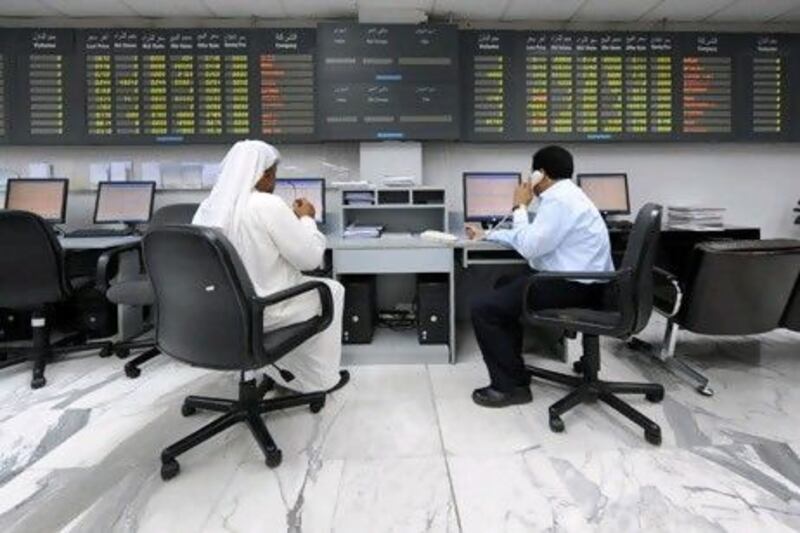MANAMA // Bahrain's stock exchange is considering a tie-up with another bourse to halt a decline in liquidity, the market's director says.
Low levels of trading have long afflicted the Bahraini market, the second-smallest in the Gulf after Muscat, but volumes have declined further recently with the unrest that has closed most of Manama's financial district and dampened investor confidence across the region.
"It will be important to bring in a strategic partner but all the options are open right now," said Fouad Rahman Rashid, the director of the Bahrain Bourse. "We have to find ways to see an improvement in liquidity [and] we are addressing this."
Mr Rashid said the market was dominated by big companies who look at long-term investments rather than daily trading.
Unlike some regional markets that are skewed towards retail investors, the Bahrain Bourse is made up mostly of institutions including family offices that tend to buy and sell shares infrequently and in large blocks.
Mumtalakat, the state-owned investment fund, is one of these shareholders and has US$9.5 billion (Dh34.89bn) in assets under management, with shares in some of the biggest companies, including Aluminium Bahrain (Alba), Gulf Air and Bank of Bahrain.
The few individual traders on the Manama market also hold on to shares tightly , said Anthony Mallis, the chief executive of Securities & Investment Company, Bahrain's largest listed brokerage.
A consolidation of all the region's stock exchanges would be one way of addressing the lack of liquidity, Mr Mallis said.
"The opportunities are glaringly obvious," he said, adding that floating shares of large government organisations could also increase trade.
"The nature of investors here is to stuff it under the mat," he added. "That has been a problem for a long time. But it's about floating the right amount at the right time."
Last year, Alba priced its initial public offering on the Bahrain market at the bottom of the proposed range after it drew just enough buyers to cover the listing.
Regional investors cited a lack of liquidity as one reason for the lukewarm response.
Of the 40 companies listed on the exchange, shares in only six companies were traded yesterday.
Despite the unrest, Bahrain's all-share index has fallen by only 3.7 per cent in the year so far. Local institutions own 55 per cent of the Bahrain stock market, while non-Bahrainis, of which most are from the GCC, own 45 per cent.
In January, Bahrain's exchange went a step towards becoming an independent company when it announced plans to devolve its management to the private sector.






